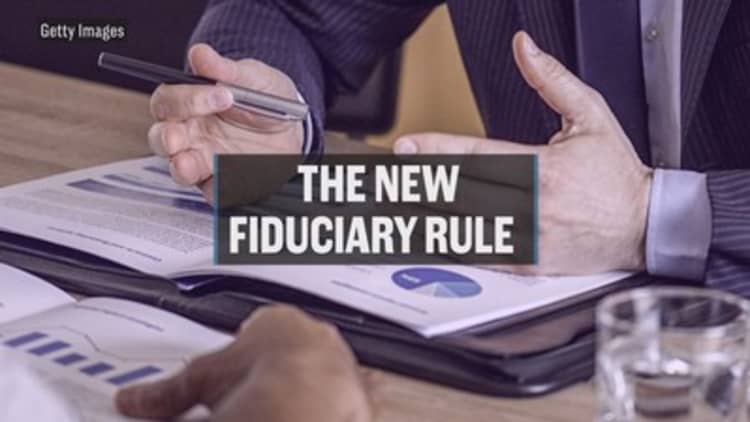A rule that would require that all financial advisors to act in their clients' best interests with regard to their retirement accounts has been killed.
The U.S. Fifth Circuit Court of Appeals confirmed on Thursday its decision to vacate the Department of Labor's so-called fiduciary rule.
The decision comes after a complete implementation of the rule was stalled following efforts by the Trump administration to investigate its effects on business.
The Labor Department issued its final rule in April 2016. The new requirements were scheduled to be phased in between June 2017 and July 2019.
The Securities and Exchange Commission, meanwhile, has also expressed interest in establishing its own rule. The agency had been authorized to create its own fiduciary standard when the Dodd-Frank Act was passed in 2010.

In April, the SEC said it planned to propose a best-interest standard for investment advisers and broker-dealers that make recommendations to retail investors. The agency also opened the proposal up for a 90-day comment period.
The Securities Industry and Financial Markets Association, a trade group that represents banks and asset management and securities firms, praised the court's decision.
"We are pleased the Fifth Circuit today issued its mandate," SIFMA president and CEO Kenneth E. Bentsen, Jr. said in a prepared statement. "The SEC, not the DOL, is the appropriate regulator in this area, and we look forward to working with the SEC on the current proposed rule-making to establish a best interest standard across all accounts, and not just retirement accounts."
Knut Rostad, president of the Institute for the Fiduciary Standard, a non-profit research, education and advocacy organization, called the court's decision "tragic."
"It's clear consumers are on their own," Rostad said.
More from Personal Finance:
Here's what that Supreme Court sales tax decision means for you
Social Security benefits buy 34 percent less than in 2000, study reveals
Here's why some retirees no longer have to file a tax return
Rostad said he met with SEC Chairman Jay Clayton on Tuesday, who affirmed he is "totally committed to moving these proposals forward as fast as possible."
But the best-interest standard will require significant strengthening and clarification, Rostad said, including for industry professionals who do not know the difference between a best-interest and fiduciary standard.
"For years, the courts have used best interest and fiduciary interchangeably," Rostad said. "It's not just the investor on Main Street who will be confused. Lots of other people will be confused as well."
With any regulation far from being enforced, investors should demand to know whether their advisor is acting as a fiduciary.
"Demand that the individual puts in writing they are fiduciaries at all times for all advice in the relationship," Rostad said. "The vast majority of financial professionals will not be able to do that."


